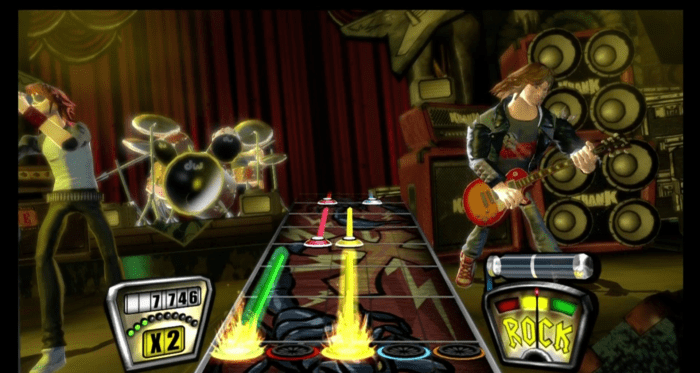Six years ago in Dublin, Ireland, Ian Burkhart ended up in an accident that left him paralyzed and unable to use his arms and legs. The injury in his spinal cord means he can’t move below the elbow, even though his brain signals work as they did before his accident.
A device implanted in his brain developed by scientists at Ohio State University and Battelle Memorial Institute records signals from neurons that fire when he’s thinking about a movement, which is passed to a computer that decodes it. That, in turn, is sent to a sleeve that he wears on his forearm that stimulates his wrist and finger muscles. He’s been having three sessions a week for over a year (each one starts with a 10-15 minute training period), and is currently able to swipe a credit card, pick up a mug and pour things, and play Guitar Hero. You can check it out in the video below.
“The machine is actually learning, and Ian is learning how to refine his thought patterns,” said Chad Boulton, lead author on the paper. “The machine and the person are learning together, and after that 10–15-minute period there’s a dramatic improvement, it’s been really amazing to watch.” Burkhart added that it’s become easier to do all that he’s able to do (Guitar Hero, pouring a mug’s contents into a container, etc.) with more practice, though he did start out feeling “mentally fatigued and easily exhausted” during the short sessions.
It’s all really amazing to read, but it’ll be a while before this technology is distributed to the mass public. Andrew Jackson, a neuroscientist from Newcastle University and not involved with the work, said that, “There’s still quite a long way towards turning this into something that would be feasible for widespread use in large numbers of people.” The device would have to be smaller to be implanted in the skin, for one thing. Because brain signals change each day, the team hopes that there’ll eventually be a system that’ll work daily without any calibrations, either with the help of better electrode designs or finding more stable signals.
“It will be years until a paralyzed patient will be able to control neural prostheses independently from caregivers,” says Jonas Zimmerman, another neuroscientist who works at Brown and also wasn’t involved in the study. “But there is nothing that should make this improvement impossible.”
Check Out More
- New Destiny Shader Makes You Look Like Iron Man
- Official Cover Art Revealed for Zero Time Dilemma
- Watch the Star Wars Rogue One Trailer Recreated in Fallout 4





Published: Apr 13, 2016 02:25 pm